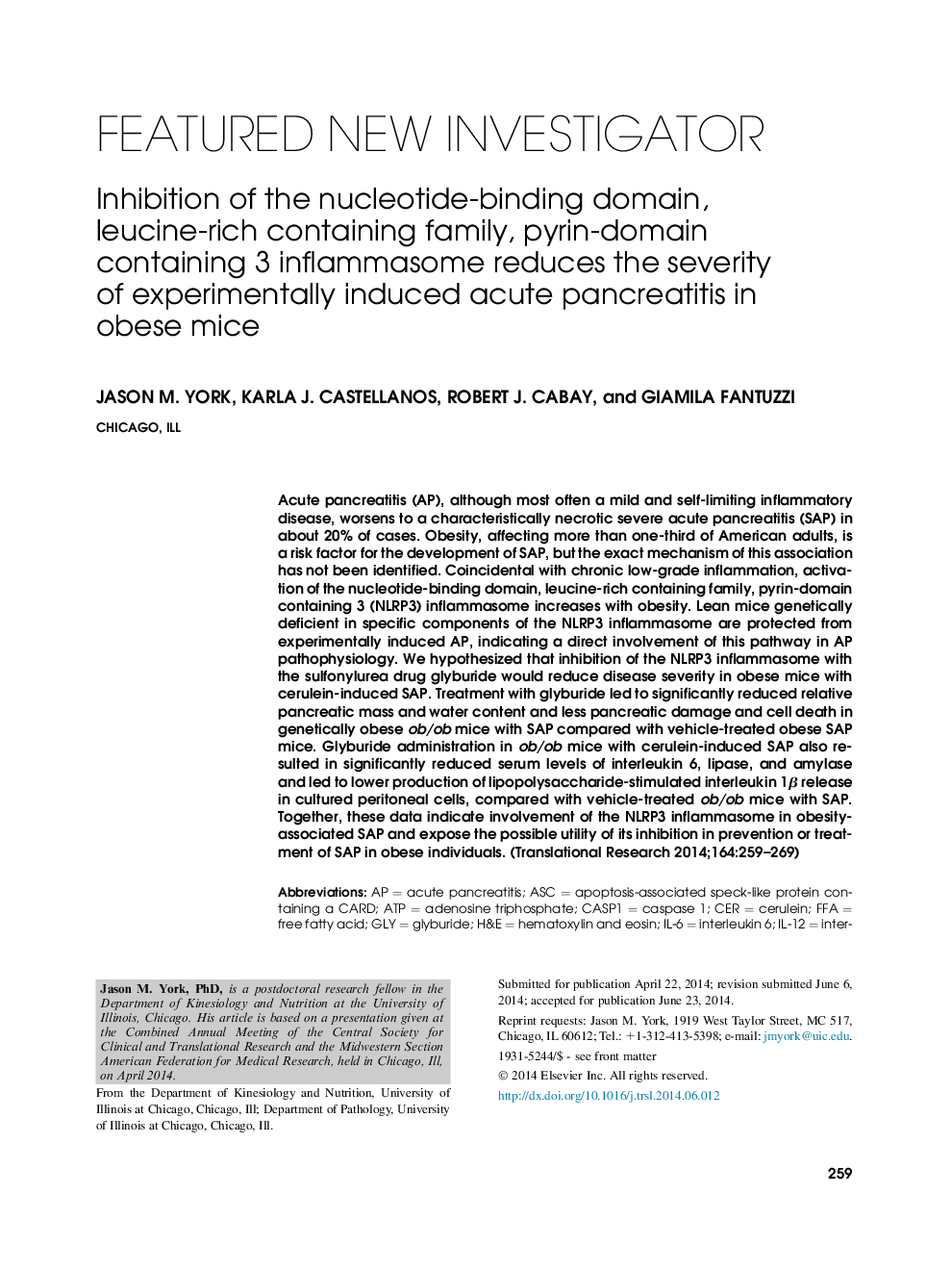| Article ID | Journal | Published Year | Pages | File Type |
|---|---|---|---|---|
| 3840496 | Translational Research | 2014 | 11 Pages |
Acute pancreatitis (AP), although most often a mild and self-limiting inflammatory disease, worsens to a characteristically necrotic severe acute pancreatitis (SAP) in about 20% of cases. Obesity, affecting more than one-third of American adults, is a risk factor for the development of SAP, but the exact mechanism of this association has not been identified. Coincidental with chronic low-grade inflammation, activation of the nucleotide-binding domain, leucine-rich containing family, pyrin-domain containing 3 (NLRP3) inflammasome increases with obesity. Lean mice genetically deficient in specific components of the NLRP3 inflammasome are protected from experimentally induced AP, indicating a direct involvement of this pathway in AP pathophysiology. We hypothesized that inhibition of the NLRP3 inflammasome with the sulfonylurea drug glyburide would reduce disease severity in obese mice with cerulein-induced SAP. Treatment with glyburide led to significantly reduced relative pancreatic mass and water content and less pancreatic damage and cell death in genetically obese ob/ob mice with SAP compared with vehicle-treated obese SAP mice. Glyburide administration in ob/ob mice with cerulein-induced SAP also resulted in significantly reduced serum levels of interleukin 6, lipase, and amylase and led to lower production of lipopolysaccharide-stimulated interleukin 1β release in cultured peritoneal cells, compared with vehicle-treated ob/ob mice with SAP. Together, these data indicate involvement of the NLRP3 inflammasome in obesity-associated SAP and expose the possible utility of its inhibition in prevention or treatment of SAP in obese individuals.
